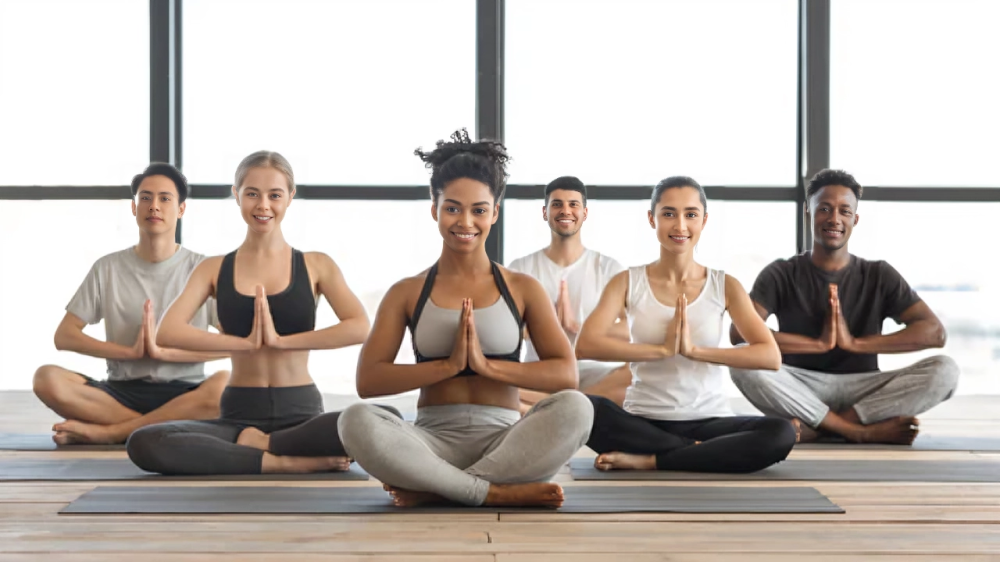Table of Contents
ToggleIntroduction
In today’s fast-paced world, modern wellness practices have become essential for maintaining a balanced life. These practices focus on enhancing mental, physical, and spiritual well-being, offering holistic approaches to overall health. As people navigate stressful work environments and personal challenges, the need for effective self-care routines has never been more important. From meditation to fitness programs, modern wellness techniques encourage individuals to prioritize health. Let’s explore some of the most popular practices that have gained momentum and understand their benefits in daily life.
1. The Rise of Mindfulness and Meditation
In recent years, mindfulness and meditation have emerged as key wellness practices for mental clarity. By dedicating time to mindfulness, individuals learn to focus on the present moment and alleviate stress. Many people integrate meditation into their daily routines, aiming to calm their minds and reduce anxiety. Furthermore, scientific studies reveal the positive impact of mindfulness on cognitive function and emotional regulation. This practice encourages self-awareness, helping individuals become more in tune with their thoughts and feelings.
Transitioning from the demands of modern life to a state of calm can significantly enhance emotional well-being. Meditation apps like Headspace and Calm provide easy access to guided sessions for beginners. Additionally, group meditation classes offer a community-focused approach to mindfulness, bringing people together. With consistent practice, meditation enhances focus and boosts overall mental health. The simplicity of meditation allows anyone to integrate it into their daily life.
2. Fitness Programs Tailored to Individual Needs
Physical fitness remains a cornerstone of wellness, but modern practices have shifted toward more personalized programs. Gone are the days of one-size-fits-all workouts; now, fitness routines cater to individual preferences and abilities. Whether it’s yoga, Pilates, or high-intensity interval training (HIIT), there’s a program for everyone. Many people choose fitness activities that align with their lifestyle, ensuring long-term commitment and enjoyment.
Personal trainers, both in-person and virtual, create workout plans tailored to individual goals, offering a sense of accountability. In addition, fitness apps like Nike Training Club and MyFitnessPal provide users with customized plans and progress tracking. These tools empower individuals to take charge of their physical health while staying motivated. With personalized fitness routines, achieving a healthier body becomes more accessible and sustainable.
3. Nutrition as a Vital Component of Wellness
Proper nutrition plays a significant role in modern wellness practices, as food directly impacts mental and physical health. Today, more people recognize the importance of eating balanced meals that provide essential nutrients for optimal well-being. Modern diets emphasize whole foods, plant-based ingredients, and sustainable eating habits, moving away from processed foods. Consuming nutrient-rich foods fuels the body, improves mood, and enhances overall health.
Many wellness enthusiasts advocate for mindful eating, which involves being fully present during meals to enhance digestion. By paying attention to hunger and satiety cues, individuals avoid overeating and make healthier food choices. Furthermore, the rise of organic and locally sourced foods promotes sustainability while benefiting the environment. Proper nutrition not only nourishes the body but also supports mental clarity and energy levels, helping people thrive.
4. Holistic Healing and Alternative Therapies
Beyond traditional medicine, many individuals now seek holistic healing methods to achieve overall wellness. Practices like acupuncture, aromatherapy, and chiropractic care offer alternative solutions to various health concerns. Acupuncture, for instance, is used to alleviate pain, reduce stress, and promote the body’s natural healing processes. Aromatherapy, which involves using essential oils, helps people relax and find emotional balance.
Alternative therapies aim to treat the root cause of ailments rather than just managing symptoms. For example, chiropractic care focuses on spinal alignment to improve nervous system function and relieve discomfort. Many people find these therapies complement conventional treatments, enhancing the healing process. By integrating alternative approaches, modern wellness encourages a more comprehensive view of health.
5. Technology and Wellness: A Perfect Match
The fusion of technology and wellness has transformed how people approach their health and well-being. Wearable devices like Fitbit and Apple Watch track physical activity, sleep patterns, and heart rate, helping users monitor their progress. These gadgets provide real-time data, making it easier to maintain a healthy lifestyle and set personal goals. Additionally, digital health platforms offer virtual consultations with healthcare professionals, making wellness more accessible.
Technology also plays a role in mental health, with apps offering mood tracking, therapy sessions, and guided meditations. Virtual fitness classes and wellness communities allow individuals to stay connected and motivated. Moreover, telemedicine ensures people can access healthcare without leaving their homes, particularly during busy schedules. With technology’s growing influence, modern wellness practices have become more convenient and user-friendly.
6. The Importance of Sleep in Wellness
Sleep is a fundamental pillar of wellness that is often overlooked, yet it plays a crucial role. Quality sleep rejuvenates the body, sharpens the mind, and balances emotions, contributing to overall well-being. Unfortunately, modern lifestyles often lead to sleep deprivation, impacting physical and mental health. Incorporating sleep hygiene practices, such as establishing a bedtime routine and limiting screen time before bed, improves sleep quality.
Many wellness practitioners emphasize the need for restorative sleep, linking it to cognitive function and emotional stability. Sleep-tracking devices help individuals monitor their sleep cycles, offering insights into improving rest. Creating a sleep-friendly environment with comfortable bedding and minimizing noise or distractions promotes deeper sleep. Prioritizing sleep as part of a wellness routine ensures that the body and mind function at their best.
7. Self-Care Rituals for Emotional Wellness
Self-care has become an essential aspect of modern wellness, focusing on nurturing emotional health through personal rituals. Activities like journaling, practicing gratitude, and spending time in nature foster emotional balance. These rituals allow individuals to process their feelings, release negative emotions, and practice mindfulness. Regular self-care improves self-esteem, enhances resilience, and provides a sense of inner peace.
Additionally, creative outlets like painting, writing, or playing music offer an emotional release while stimulating mental clarity. By carving out time for self-care, individuals recharge and strengthen their emotional well-being. Incorporating self-care rituals into daily life helps individuals better manage stress and navigate life’s challenges with a calm mindset. Emotional wellness is a vital component of holistic health, supporting mental clarity and personal growth.
Conclusion
Modern wellness practices focus on achieving balance in mind, body, and spirit through various holistic approaches. From mindfulness and meditation to personalized fitness programs and proper nutrition, these practices encourage a healthier lifestyle. By integrating alternative therapies, leveraging technology, and prioritizing sleep, individuals enhance their overall well-being. Furthermore, self-care rituals play a crucial role in emotional health, offering moments of reflection and peace. With the diverse range of wellness options available today, people can tailor practices to their unique needs, leading to a more balanced life.











